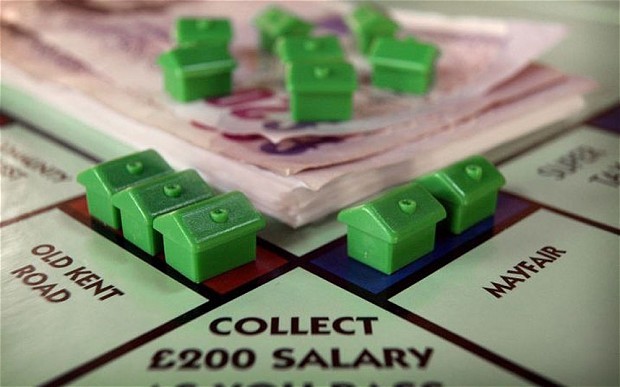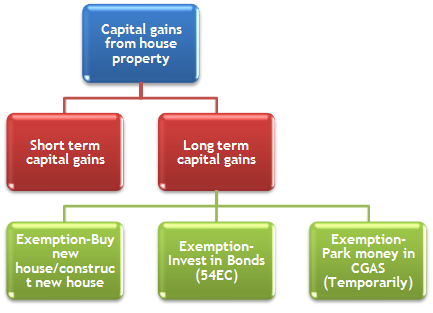Avoid Capital Gains Tax On Investment Property
Post on: 13 Апрель, 2015 No Comment

33 Flares Twitter 3 Facebook 19 Google+ 4 LinkedIn 7 Filament.io More Info ‘> 33 Flares
Capital Gains Tax will invariably form a part of every property investors journey.
Fortunately there are a number of strategies to help you avoid Capital Gains Tax on investment property.
Capital Gains Tax is tax paid on the profit you make from the sale of a property.
A capital gain is the difference between what you paid for a property and what you sold it for.
In Australia investors pay Capital Gains Tax on:
- Real estate.
- Shares.
- Managed funds.
How much Capital Gains Tax will I have to pay?
If you decide to sell an investment property, your Capital Gains Tax calculation will be based on the sale price of the property, minus your expenses.
These expenses form your cost base and are calculated by adding the total sum of the original purchase price, plus any incidentals, ownership and title costs minus any government grants and depreciable items.
These expenses can included:
- Incidental costs stamp duty, legal fees, agent fees and advertising and marketing fees.
- Ownership costs rates, land tax, maintenance and interest on your home loan.
- Improvement costs replacing kitchens, bathrooms, flooring or any other improvements youve made on the property.
- Title costs legal fees associated with organising and defending your title on the property.
Can I make a capital loss?
A capital loss is when you sell a property for less than your reduced cost base.
The good news is you can carry a capital loss forward into future years and offset this lost against future capital gains you make.
Can I avoid paying Capital Gains Tax on my principle / main place of residence?
You can avoid paying Capital Gains Tax if youre selling a property which is considered your principle main place of residence.
You can only ever nominate one principle / main place of residence at any given time unless your selling an old residence to buy a new new.
In this case youre entitled to a 6 month over lap period, as long as you lived in the old property for three continuous months in the 12 months before you sold it, and you were not receiving rent in the same 12 month period.
While the Australian Tax Office does not give an exact description of what constitutes a principle / main place of residence, it does give the following points to consider:
- You and your family live in the dwelling.
- Your mail is delivered there.
- You have your personal belongings there.
- Youre registered to vote at the propertys address.
- You have connected a phone, gas and electricity to the property.
Like what youve read so far? Join over 9500 investors and Subscribe to our FREE MONTHLY NEWSLETTER here .
Investment tip

Many successful renovators and investors buy and sell a principle place of residence every 12 18 months.
They do this to create short term profits which are exempt from capital gains tax.
This strategy can be used to:
- Produce chunks of tax free income.
- Own your own home quicker.
- Climb the property ladder.
- Re-invest in additional investment properties.
Can I legally avoid paying Captial Gains Tax while renting out my house?
If you move out of your principle / main place of residence and choose to rent it out, you may be exempt from some Capital Gains Tax liability under the Temporary Absence Rule.
What is the Temporary Absence Rule?
If youve moved out of your home and rent it out, under the law, the property is still treated as your principal residence for a period of up to six years.
Therefore if you sell your property within this 6 years you may be exempt from paying Capital Gains Tax if you profit from the sale.
You may also be exempt from paying capital gains on the income generated from the leasing of the property.
Sound too good to be true?
Unfortunately you will still need to pay Capital Gains Tax on the sale of one of your properties.
For example if you move out of your home and rent it out, and you also buy another property to live in, you will need to elect one of the two properties as your principle place of residence and the other as the property to pay Capital Gains Tax.
Can I avoid avoid paying Capital Gains Tax by buying a property through my self-managed super fund (SMSF)?
Buying property through your SMSF is one way you can generate profits through residential property while avoiding Capital Gains Tax .
If you sell a property once you retire you wont pay capital gains on the property.
Even if you sell the property while youre still working, you will only be taxed at a rate of 15%.
Further more if youre holding onto the property for longer than a year the tax rate will effectively drop to 10%.
Buying a property with your SMSF comes with some risks, so you should never attempt it without first seeking professional advice.
Unfortunately there is no silver bullet to avoid Capital Gains Tax on investment property.
This said you can use the ideas in this article to position yourself in the best position possible.
Like what youve read so far? Join over 9500 investors and Subscribe to our FREE MONTHLY NEWSLETTER here .
The information in this article was provided by Daniel Hill from Mulraneys. Daniel is a CPA and specialises in small business advice & taxation, business structures, SMSF, GST, capital gains tax & audit.
Information on this Internet site should not be regarded as a substitute for professional legal, financial or real estate advice.
www.pumpedonproperty.com.
www.pumpedonproperty.com copyright material beyond such uses, permission must be sought directly from Pumped on Property. If given, permission will be subject to the requirement that the copyright owner’s name and interest in the material be acknowledged when the material is reproduced or quoted, in whole or in part.
Ben Everingham’s mission is to help you replace your income through property investing so you can do what you love. full time.
Comments
Monika says
Hi Ben
We relocated interstate and purchased a block of land to build on so we were renting whilst obtaining building quotes. we ended up selling that block of land due to huge acoustic requirement costs.
We have since purchased another block of land and building is due to commence in the next couple of weeks.
my issue is our accountant made us pay capital gains tax on the profit we made on our personal block of land. We do not own any other personal properties. And were and still are renting whilst we are waiting for our home to be built. I still feel we have been ripped off by the ATO.
Does this situation sound correct??














